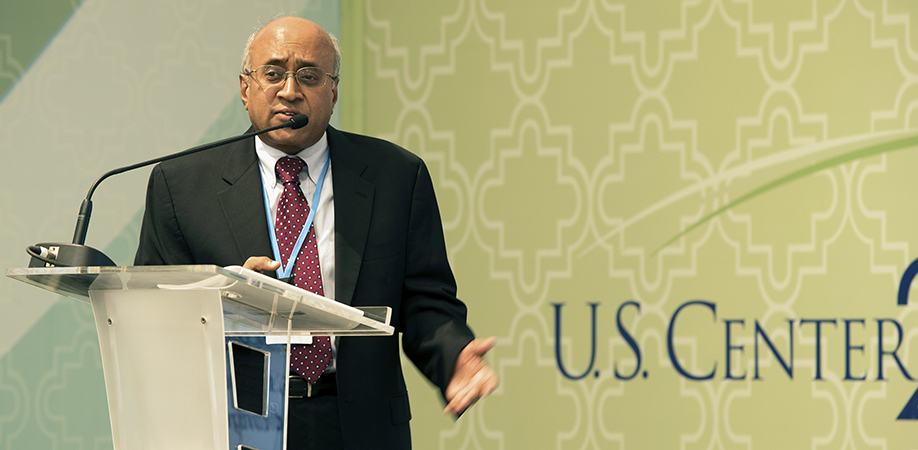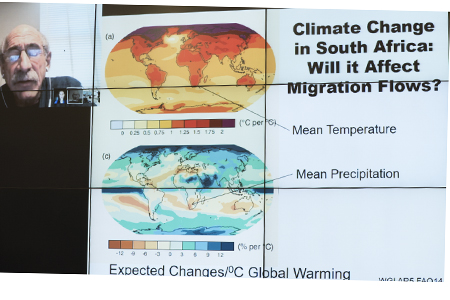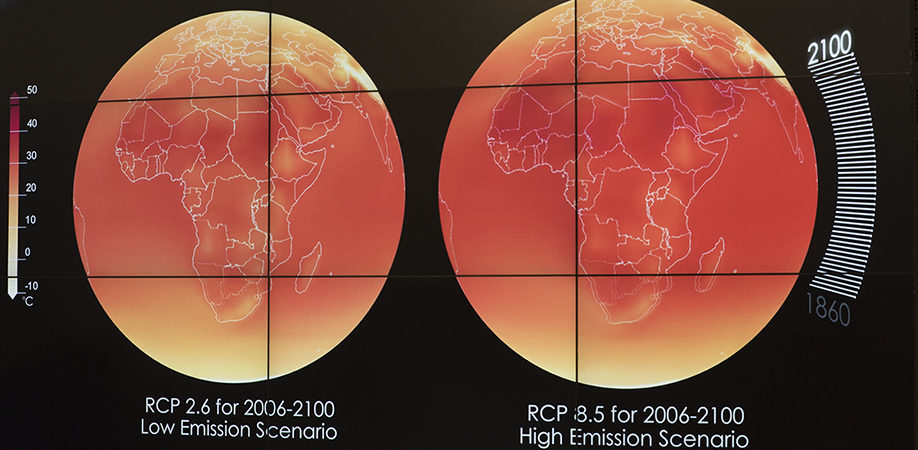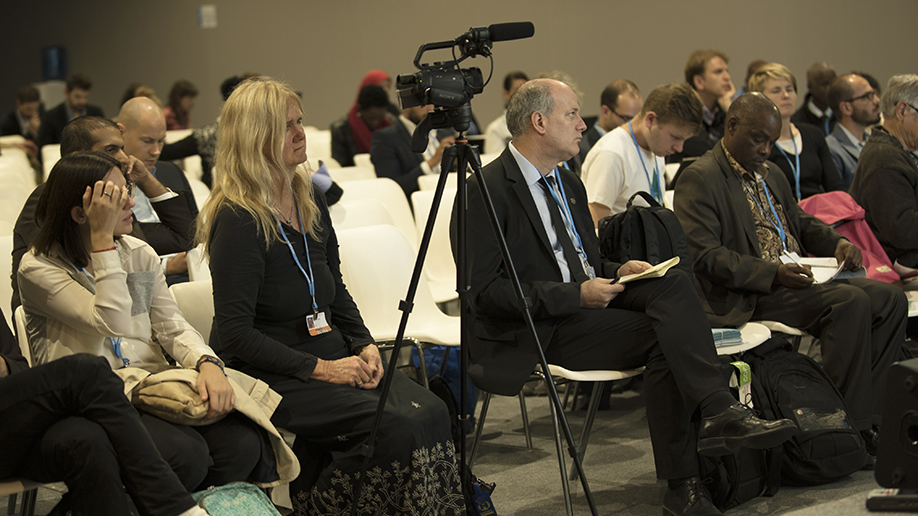Summary
IISD Reporting Services, through its ENB+ meeting coverage, has provided digital coverage of selected U.S. Center events every day, during the Marrakech Climate Change Conference - November 2016.
Photos by IISD/ENB | Liz Rubin
For photo reprint permissions, please follow instructions at our Attribution Regulations for Meeting Photo Usage Page
21st Century Regional Climate in a Warming World
Presented by the National Oceanic and Atmospheric Administration (NOAA)
V. Ramaswamy, Geophysical Fluid Dynamics Laboratory (GFDL), moderated the session. He highlighted that modeling helps to translate science into guidance for policymakers regarding climate impacts on regional livelihoods, and explained that it is very likely that heat waves will occur more often and for longer durations in the 21st century. He noted that the need to constantly improve tools for capturing regional information to identify the occurrence and causes of extreme events, such as floods, storms, fires and droughts. Ramaswamy highlighted the knowledge gap regarding the formation of dust storms and hurricanes in Africa.
Ilissa Ocko, Environment Defense Fund, said that observed climate change impacts on people’s livelihoods in Africa include: decline in fruit bearing trees; pest infestations of coffee berries; flooding; national security threats; reduced fisheries productivity; devastating droughts; increases in malaria; and retreating glaciers and forest fires. She noted that quantifying impacts is not easy due to, inter alia, uncertainty in our understanding of the climate system. She explained that climate models are used to predict future impacts on key crops yields in Africa. Ocko noted that some crops will experience negative impacts, but said opportunities may emerge for others.
Michael Oppenheimer, Princeton University, focused on analyzing the relations among changes in temperature and precipitation and their connections with human migration, choice of economic crops and crop yields in South Africa. He also described scenarios for internal migration in South Africa.
In the ensuing discussion, participants asked about policies to prevent extreme events and the greater need for adaptation measures to be inserted into future climate policies.
V. Ramaswamy, GFDL, explained that weather-climate models need better resolution for capturing regional information.
Michael Oppenheimer, Princeton University, said that climate data analysis helps in developing policies for adaptation measures in South Africa.
Ilissa Ocko, Environment Defense Fund, said that climate change is not a distant future event and is already impacting every continent and every ocean.
Participants during the event





